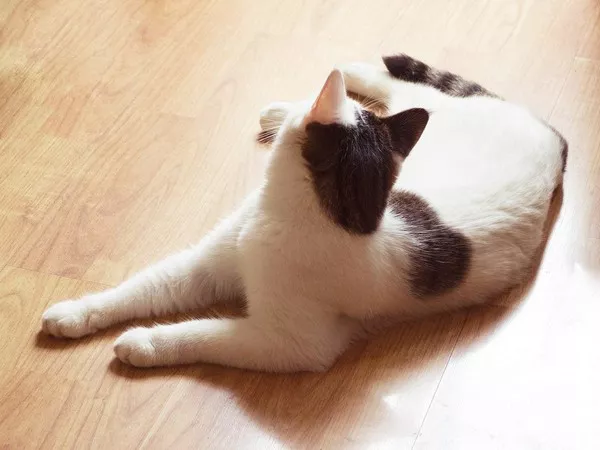Wild cottontail rabbits, with their endearing fluffy tails and delicate features, often capture the hearts of nature enthusiasts and animal lovers alike. As these charming creatures navigate their natural habitats, it’s essential to understand their dietary needs to support their health and well-being. In this comprehensive guide, we will explore the intricacies of what to feed wild cottontail rabbits, considering their natural diet, nutritional requirements, and potential challenges they face in the wild.
Understanding the Natural Diet of Wild Cottontail Rabbits
Wild cottontail rabbits are herbivores, primarily consuming a diet rich in grasses, herbs, and leafy greens. Their natural habitat influences their food choices, and they have evolved to thrive on a variety of plant-based foods. Understanding their natural diet is crucial for providing suitable alternatives in captivity or in environments where their usual food sources may be limited.
1. Grasses and Hay
The foundation of a wild cottontail rabbit‘s diet is grass. In the wild, they forage for various grasses, which not only provide essential nutrients but also aid in maintaining proper dental health. In captivity, providing high-quality grass hay, such as Timothy hay, orchard grass, or meadow hay, is essential. Hay not only mimics their natural diet but also helps wear down their continuously growing teeth, preventing dental issues.
2. Fresh Greens and Vegetables
Wild cottontail rabbits have a diverse palate, including various leafy greens and vegetables. When considering what to feed them, mimic their natural diet by offering a mix of dark, leafy greens like kale, spinach, and romaine lettuce. Additionally, vegetables such as carrots, broccoli, and bell peppers can add nutritional variety to their diet.
3. Native Plants and Shrubs
In the wild, cottontail rabbits may consume native plants and shrubs. While replicating this aspect in captivity can be challenging, providing safe and non-toxic plants, like dandelion greens or raspberry leaves, can contribute to a more diverse and enriching diet.
Nutritional Requirements for Wild Cottontail Rabbits
Ensuring that wild cottontail rabbits receive a nutritionally balanced diet is crucial for their overall health and vitality. Understanding their specific nutritional requirements allows caretakers to make informed decisions when selecting foods for these charming creatures.
1. High-Fiber Diet
Rabbits, both wild and domestic, thrive on a high-fiber diet. Fiber is essential for maintaining proper digestive health and preventing issues such as gastrointestinal stasis. Grasses and hay serve as excellent sources of fiber, and their inclusion in the diet helps replicate the wild cottontail’s natural eating habits.
2. Adequate Protein
While wild cottontail rabbits are primarily herbivores, they still require a moderate amount of protein for muscle development and overall health. In captivity, supplement their diet with fresh greens, vegetables, and, occasionally, small amounts of high-quality rabbit pellets to ensure they receive adequate protein.
3. Limited Sugars and Starches
Avoiding excessive sugars and starches is crucial for preventing obesity and related health issues. While fruits can be a tempting treat, they should be given in moderation due to their sugar content. Stick to fibrous, low-sugar fruits like berries as occasional treats.
Challenges and Considerations for Feeding Wild Cottontail Rabbits
Caring for wild cottontail rabbits, whether in a rehabilitation setting or as part of an ecological preservation effort, comes with its unique challenges. Understanding these challenges and implementing appropriate feeding strategies is essential for their well-being.
1. Captivity-Related Stress
Wild rabbits may experience stress in captivity, impacting their appetite and overall health. Minimize stress by providing a quiet and secure environment. Additionally, offering a mix of familiar and novel foods can encourage eating.
2. Dietary Transition
Introducing new foods gradually is crucial to prevent digestive upset. Abrupt changes in diet can lead to gastrointestinal issues. Slowly incorporate new items, monitoring the rabbit’s response to each addition.
3. Dental Health
Maintaining proper dental health is vital for wild cottontail rabbits. In captivity, provide chew toys and ensure access to high-quality hay to promote natural tooth wear. Regular veterinary check-ups can address any emerging dental concerns.
Tips for Feeding Wild Cottontail Rabbits in Rehabilitation
Wild cottontail rabbits in rehabilitation require special attention to ensure a successful release back into their natural habitat. Rehabilitation centers play a crucial role in providing proper nutrition while addressing specific challenges associated with caring for these wild creatures.
See Also:Can I Use Horse Pellets for Rabbit Litter?
1. Collaborate with Wildlife Experts
Wildlife rehabilitation centers often collaborate with veterinarians and wildlife experts. Seek professional advice to create a tailored diet plan that addresses the individual needs of each rabbit in rehabilitation.
2. Monitor Weight and Health
Regular monitoring of a wild cottontail rabbit’s weight and health is essential during rehabilitation. Adjust the diet based on the rabbit’s condition and response to the provided food to support a healthy recovery.
3. Gradual Transition to Wild Foods
As rabbits progress in their rehabilitation journey, gradually introduce them to natural foods found in their native habitat. This helps them reacquaint themselves with their natural diet, increasing their chances of successfully foraging upon release.
Conclusion
Feeding wild cottontail rabbits requires a nuanced understanding of their natural diet, nutritional requirements, and the challenges they face in captivity or rehabilitation. By replicating their natural eating habits and addressing specific considerations, caretakers can contribute to the well-being and successful rehabilitation of these charming creatures. As we strive to coexist with and preserve the beauty of our natural world, a commitment to understanding and responsibly caring for wild cottontail rabbits becomes a testament to our dedication to wildlife conservation.
Related Topics:
Can 1-Month-Old Rabbits Eat Carrots?
How Much Pellets to Feed a Young Rabbit?
Choosing the Best Litter Pellets for Rabbits: A Comprehensive Guide



























